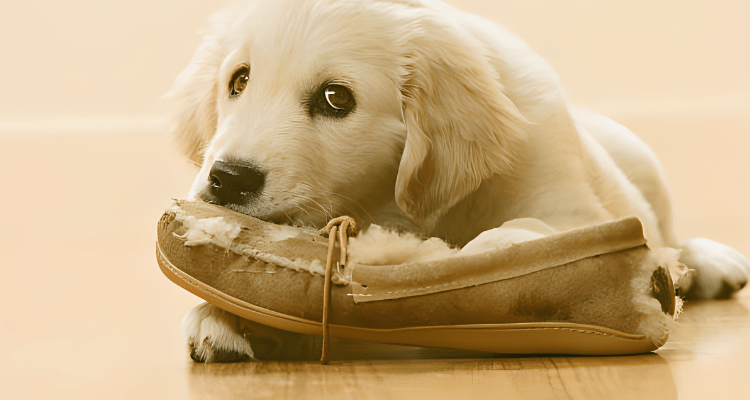Playing with puppies is a joyful experience in itself. However, they also have razor-sharp teeth, which can quickly turn your playtime into a painful experience. Although nipping and biting are normal behaviour of puppies, there is a need to soothe it or else it can become dangerous when they grow up.
In this blog, you will see some highly effective tips to reduce the biting tendency of puppies, while keeping an excellent bond with them.
Let us get started,
1) Understand the Root Cause
Before jumping into solutions straight away, you have to understand why your puppy is biting so much. Although puppies engage in biting and chewing to explore their surroundings, sometimes discomfort in gums can also make them bite and chew to reduce the pain. The discomfort in gums is normal for puppies during their teething phase between 3 to 6 months. Recognising this essential fact helps dog owners to approach the biting and chewing problem of puppies with more empathy and patience.
2) Teach Bite Inhibition to Pups
Bite inhibition essentially means that you are teaching your puppy to control the force of the bite. Next time while playing with your puppy, if they try to bite you, let out a high-pitched sound similar to a distressed puppy. This will signal to the puppy that their bite was too strong, and they need to be gentle next time while nipping.
3) Consistent Training and Socialisation
Consistency is highly important in dog training, especially when teaching your puppies to reduce their biting behaviour. Do not miss your sessions too often, and enforce the rules you have set for the dog training properly. Socialisation is another important factor in training as it reduces anxiety in them, which is often one of the main causes of biting. Take your puppies outside for 30 minutes daily to expose themselves to a new environment which will boost their confidence.
4) Provide Good Chew Toys
Chew dog toys are highly effective when it comes to redirecting the excessive biting and chewing behaviour in puppies. Puppies during their teething phase bite a lot, and these toys keep them engaged and save your precious clothes and furniture. Opt for those chew toys that are gentle on your puppy’s teeth, and have a soft texture that is safe for their gums.
5) Puppy Proof Your Home
Puppy-proofing your house is one of the best ways to prevent damage from your puppy’s biting and chewing behaviour. One should remove items like shoes, electric cords, and household plants from the vicinity of puppies, as they like to chew these a lot. You can also use baby gates to block your puppies from entering certain areas of your house until they have learned good teething behaviour.
6) Positive Reinforcement
Positive reinforcement involves rewarding the puppies when they show a desired behaviour. You can give the puppies some good dog treats while they obey you when you tell them to not bite your clothes or other precious furniture. This acts as a positive cue which will make them repeat the behaviour. Conversely, avoid being harsh with them during training as it can only hurt any progress you have made.
All in All,
It is normal for puppies to bite and chew things quite excessively during their teething phase. This is why owners should approach the training of puppies with empathy and patience. With the tips given above, you can redirect the biting behaviour of your pups and channel their energy in other things.

